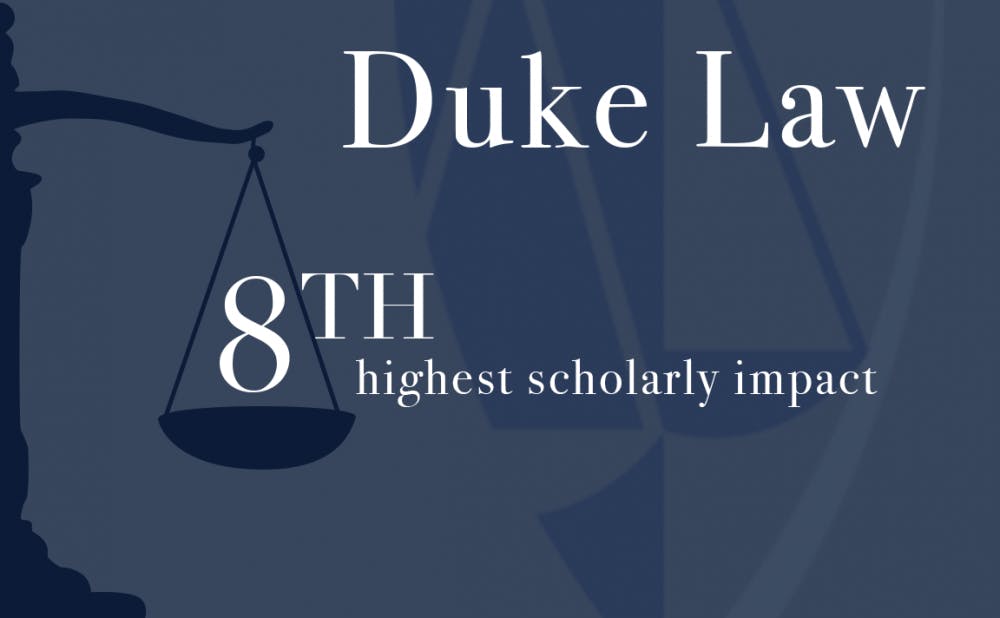Duke Law School has one of the highest scholarly impacts in the country, according to a recent ranking.
Brian Leiter's Law School Reports ranked Duke Law School as the eighth most cited law school. The citation count was recorded from articles accessed through the Westlaw database, an online legal service.
“Duke Law School has one of the top law faculties in the world with outstanding scholars who are leaders in their fields," wrote Kerry Abrams, James B. Duke and Benjamin N. Duke dean of the School of Law, through a statement from Andrew Park, executive director of communications and events.
Each law school has its scholarly impact score calculated based off the median and mean citations from its tenured law professors. The citations are counted from 2013 to 2017. A low median relative to other schools near it in the rankings indicates a small number of faculty members are cited from the school and are carrying its overall score.
Duke Law School had a median citation number of 231 and a mean of 266 for an overall weighted score of 763, had a higher median than the two schools directly above it—Stanford University and UC Berkeley. Duke also had a higher median than the four schools directly below it—the University of Pennsylvania, Vanderbilt University, UCLA and UC Irvine, meaning it employed more of a team effort than comparable schools.
The top five cited professors from Duke Law School were Matthew Adler, Richard A. Horvitz professor of law and professor of economics, philosophy and public policy; Curtis Bradley, William Van Alstyne professor of law and professor of public policy studies; James Cox, Brainerd Currie professor of law; Brandon Garrett, L. Neil Williams, Jr. professor of law, and Mitu Gulati, professor of law.
Bradley, the second-most cited professor, wrote in an email that he does not believe too much of a focus should be placed on citational rankings. But he elaborated how positive it is for Duke Law School to have public recognition of how productive and influential its faculty is.
He also mentioned how a higher median score reflects the higher the variation among legal scholars being cited.
"I am also pleased that our high ranking is not based on the work of only a few frequently-cited authors but instead reflects the fact that we have a very deep bench of innovative scholars," Bradley wrote. "This broad scholarly community is both sustained by, and helps promote, the highly collaborative and collegial environment at the law school, something that attracted me here."
Adler affirmed Bradley's framing of the productivity of the law school and said that he believes the Law School is at "a very good place."
"I think if you were to go through the list you would see the breadth of the scholarship of the faculty," Adler said.
In his post regarding the rankings, Leiter wrote that the ranking system is "a useful check on uninformed opinions and tracks rather well the actual scholarly output of different schools." However, he acknowledged how these citations are just one way of measuring scholarly distinction and accomplishment.
"While it is difficult for any one quantitative measure to capture that excellence, we were gratified to see the influence of our tenured professors’ research and writing recognized in this ranking," Abrams wrote.
Get The Chronicle straight to your inbox
Signup for our weekly newsletter. Cancel at any time.

